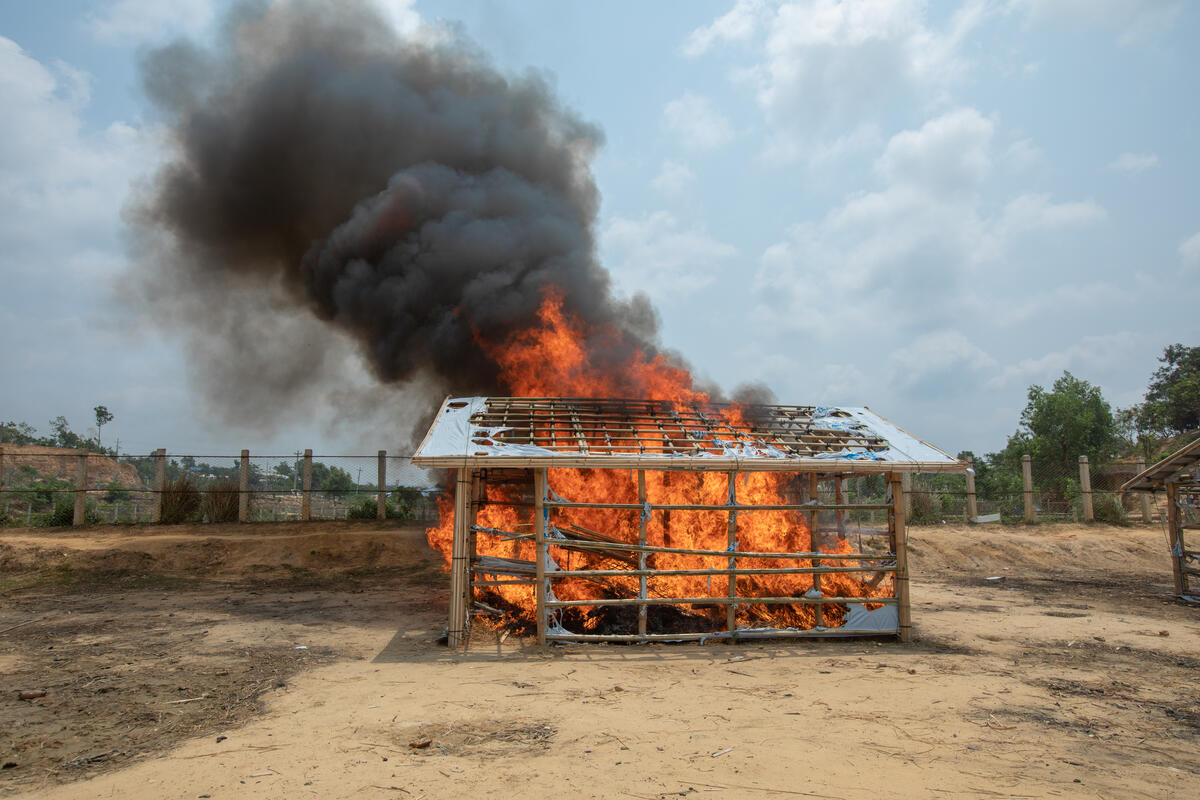Couple spend time making sculpture and reading with Eritrean guest
Couple spend time making sculpture and reading with Eritrean guest

BIRMINGHAM, England – Birmingham couple Hilary and Jim Parle decided to offer to host refugees after hearing the tragic story of three-year-old Syrian refugee Alan Kurdi, whose body was washed up on a beach in Turkey in 2015.
“We saw the picture of the toddler lying face down on the beach and that was it,” Hilary said. “We had to do something to help.”
Retired family doctor Hilary, 63, and 62-year-old Jim, a professor of medicine at Birmingham University, had room in their four-bedroom house after their three adult children had moved away.
Via the Internet, Hilary found the Birch Network, which arranges support and accommodation for refugees, and the couple was soon taking in guests. After hosting four people, in January this year they welcomed Yonasskindis*, a 72-year-old Eritrean who fled his home country after receiving death threats.
A former bar owner and accountant, Yonasskindis supported the country’s main independence movement and has been in the United Kingdom for eight years.
“They are like my brother and sister. They are very good people."
His asylum application was rejected, but he is appealing and is allowed to stay in the UK pending a decision.
He says he cannot go back to Eritrea receiving threats.
When his asylum application was rejected, Yonasskindis was evicted from the accommodation he had been given and was on the verge of homelessness had it not been for Hilary and Jim.
“They are like my brother and sister,” he said. “They are very good people. I am diabetic with high blood pressure and high cholesterol. I have to take five tablets each day. If it wasn’t for them I would be on the street.”
Hilary and Yonasskindis spend a lot of time together, making sculptures, shopping, cooking together and sharing meals.
"We both just sit together, drink tea and read.”
“It’s been remarkably straightforward,” Jim said. “I’m surprised at how easy it’s been. When people tell us it’s so great what we are doing, we say it really isn’t, it’s quite easy. Like me, he is a voracious reader, we both just sit together, drink tea and read.”
Yonasskindis is deaf but the Parles say that hasn’t been a problem.
“He loves history and is quite knowledgeable,” Hilary said. “His English is super, but he is deaf, you just have to speak loudly.
“I tell people he is like Jim but 10 years older, they both sit there and read the paper together. It’s like having a friend with us. He’s also very keen to help out.”
Jim added: “People can have views about immigration in general but it’s different when it comes to an individual.”
This story is part of a series entitled No Stranger Place, which was developed and photographed by Aubrey Wade in partnership with UNHCR, profiling refugees and their hosts across Europe. More than a year after the drowning of three-year-old Syrian refugee Alan Kurdi, thousands of people have come together to bridge cultural divides and language barriers, embracing compassion, hope and humanity – even as some European governments continue to build obstacles. Their generosity is an example to the world.
*Name changed for protection reasons










